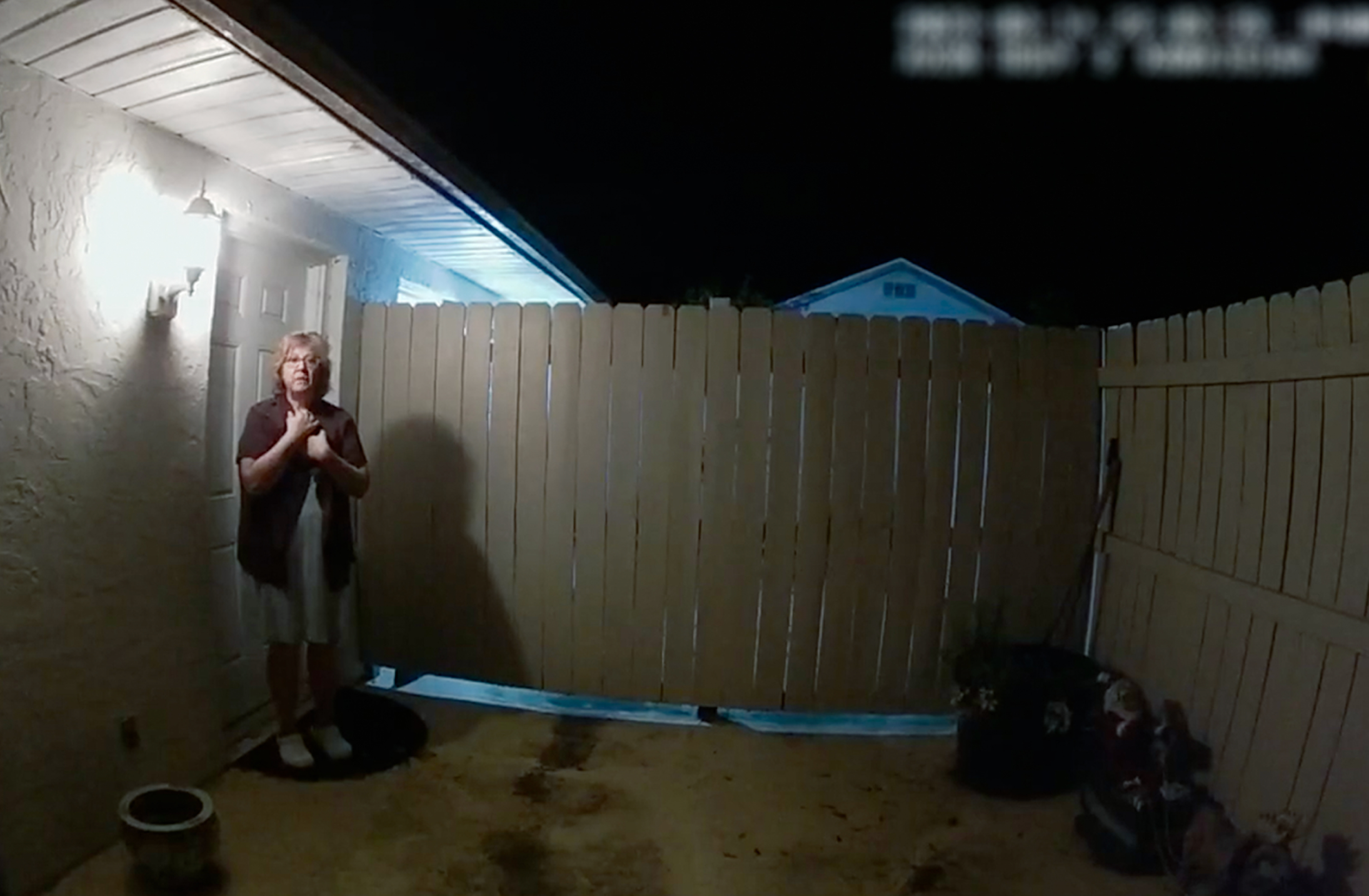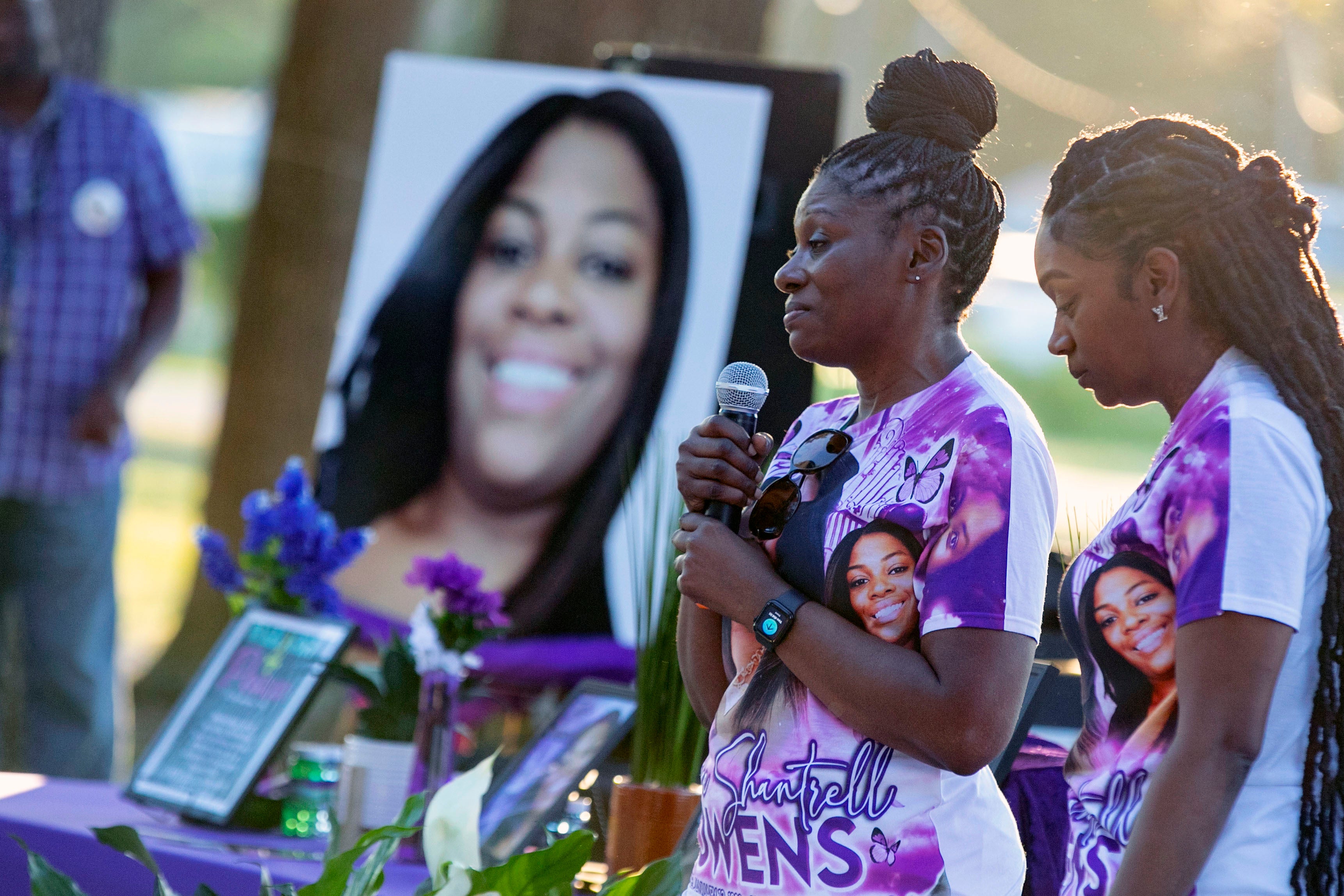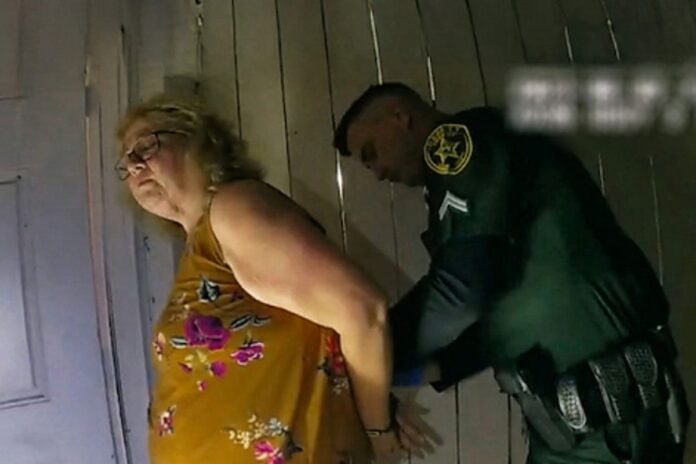On the morning of Friday, 2 June, 2023, Ajike Owens did something very normal – she knocked on her neighbour’s door. Her son had come home and said that the 58-year-old woman who lived nearby, named Susan Lorincz, had shouted and thrown items at his younger brother for playing on their shared grass area. Owens, a mother of four, crossed the street to speak to Lorincz and find out what had happened. But without answering her calls, Lorincz shot Owens through her front door, leaving her to die in the street. She was just 35.
This sounds like murder. But this is also America, where “Stand Your Ground” laws apply in more than half of US states. And that includes Florida, where Owens and Lorincz lived in the city of Ocala. The law states that people may use deadly force when they reasonably believe it to be necessary, in order to defend against certain violent crimes or in self-defence. Lorincz said she believed Owens had come to her house that night to kill her. “I don’t even actually remember picking up the gun,” she told investigating officers afterwards. “I just remember shooting.”
It took multiple days for Lorincz to even be arrested. In that time, Owens’s community mobilised to raise awareness of the injustice through placards and press interviews. Among them was film director Geeta Gandbhir, who over two days watched over 30 hours of police bodycam footage obtained through a freedom of information request to try and understand the two-years-worth of frustrating events that led up to Owens’ death. She knew what she’d seen could inspire change, and went to Owens’s mother, Pam, to ask if she could make a documentary.
The result is The Perfect Neighbour, a harrowing 97-minute film, which won Gandbhir the Directing Award for US Documentary at this year’s Sundance Film Festival. It is already pegged as a major contender at next year’s Academy Awards. “I wanted to share the pain and the tragedy,” Owen’s mother says of her brave decision to share the story of her daughter’s death with the world. “I needed the world to see what Stand Your Ground laws can do. What guns in the wrong hands can do. What racial violence looks like.”
Susan Lorincz was an outlier in her small Ocala community. It was a street where families felt welcome and trusted those who lived nearby to look after their sons and daughters as if they were their own. “They were loving. They were caring for each other. The children felt safe,” says Gandbhir. But Lorincz jeopardised that communal sense of safety and trust. Over the 12 months leading up to her shooting Owens, Lorincz rang 911 roughly a dozen times to report her neighbour’s children – 11-year-old girls with rollerskates, small boys playing basketball – for trespassing on the communal area outside her house.
The footage from the night of Owen’s death is distressing. Her son, who stood nearby and watched his mother get shot, can be seen running back across the street sobbing and shouting for help. On police bodycam footage, we hear Pam weep down the phone as the news is broken to her that her daughter is dead. “There are no words to explain,” she says today. “When I got that call, I was in shock, even after…” Pam trails off. “We were used to speaking almost daily. There were times I picked up the phone to text or call her and then…” she welps, looking down at her hands as tears form in her eyes. “When the film came together and I saw my daughter in that state… I think that’s when reality set in.”
“What the community had to go through was something out of a horror film,” reflects Gandbhir. “Susan was dangerous. But the police dismissed her. They’d come, again and again, and say, ‘Oh, we’ve dealt with this before – they just saw her as a nuisance. A frequent caller. She was actually a threat. But she weaponised her race and privilege against the community.” Lorincz, a white woman, used hate speech against the children and, allegedly, flashed a gun before Owens’s fatal shooting in 2023. Yet, police never warned her against abusing their services or harassing the neighbouring families. “They just tolerated her,” says Gandbhir. “They failed. And they didn’t protect Susan. It was the worst outcome for everyone.”

When Lorincz was finally arrested days later, she was treated with unfathomable patience by the police. In one scene included in The Perfect Neighbour, officers tell Lorincz, who is sitting in custody, that she has been charged with manslaughter – but she refuses to get up from her chair in the interview room and walk to the jail. “I just can’t,” she repeatedly tells three officers. They wait for minutes and minutes – never using force, never becoming brash or stern. “Had she been a person of colour, they would have dragged her out of the room, I have no doubt,” says Gandbhir. “She was a master manipulator and they didn’t know how to handle her.”
Research shows that homicides with white aggressors and Black victims are five times more likely to be ruled justifiable. In Stand Your Ground states, 45 per cent of cases with a white shooter and a Black victim were deemed justified, compared with just 11 per cent of cases with a Black shooter and a white victim. In Florida, the state experienced a 32 per cent increase in gun homicides after the Stand Your Ground law was enacted in 2005. The US Commission on Civil Rights has dubbed the legislation a “licence to kill”, one that allows anyone to escalate minor disputes into a needless “deadly incident”.
Lorincz was sentenced to 25 years in jail on 25 November, 2024. A judge ruled that she was motivated to shoot Owens “more by anger than fear” and that “at the time she fired the gun through the door, she was safe”. Gandbhir breezes by this verdict in The Perfect Neighbour, inserting the courtroom footage beneath the film’s credit sequence. “I don’t want anyone to feel that justice was done because Susan ended up in prison,” the director explains. “Prison shouldn’t have been the answer. There is no happy ending here. But we really hope people are motivated to demand better for themselves and their community.”

Since the film had its premiere in January this year, Owens’s mother says she has heard countless stories from those who’ve lost a loved one in a similar incident. “I cannot tell you the amount of people who come and say that something has happened to them or something has happened to their family member,” Pam says. Since her daughter’s killing, she has launched the Standing in the Gap Fund to support families impacted by racial violence. “Sadly it continues to happen in the US, time and time again,” she continues. “I’m sure there’ll be more cases. We definitely want reform. We want people to use their voices to make change.”
Gandbhir hammers it home. “Your community is a microcosm of the greater world,” she says. “So, if we can justify killing our neighbour over a trivial dispute, what else can you justify? It paves the way to war, to genocide, to our acceptance of those things. It’s how we become numb. In this film, you see people living together, loving each other, trusting each other. Being secure. All of that’s destroyed, because of one outlier’s access to guns and this Stand Your Ground law emboldening her. It never should’ve happened.”
‘The Perfect Neighbour’ streams on Netflix from 17 October



